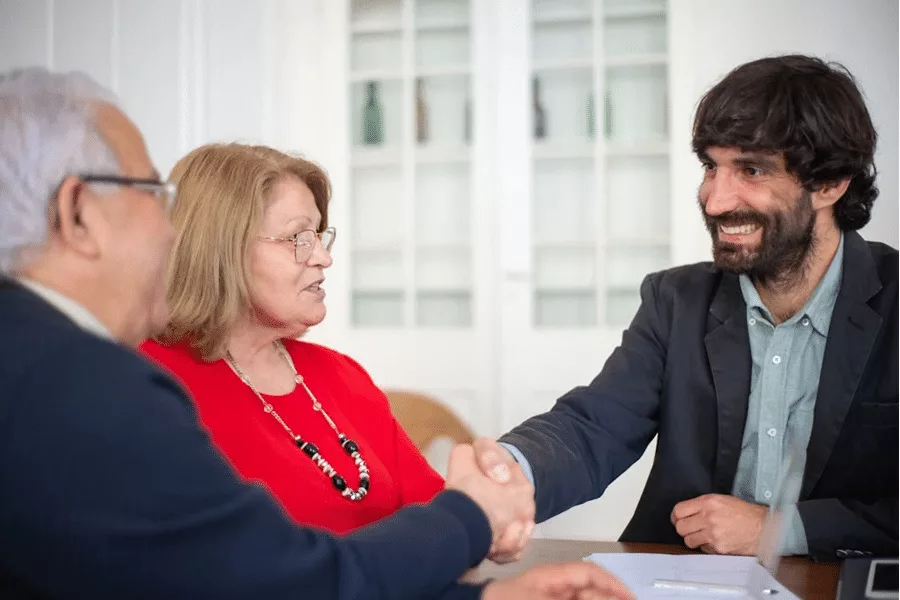Introduction
Trust protectors have become more vital in keeping an eye on trusts, especially with the knotty international estate plans that many deal with today. Imagine a trusty guide through a maze of legal twists in popular estate planning zones. This journey unveils the many hats a trust protector wears and the legal grounds they walk on. Families spread worldwide find treasure in this wisdom, making savvy moves to shield their fortunes and set their houses in order. Curious minds can tap into this well of knowledge, unlocking secrets that ensure wealth flows smoothly from generation to generation.
Trust Protectors and Their Role in International Estate Planning
A trust protector has a very important role in the administration of a trust. Their main job is to make sure the trust is managed according to what the person who set it up originally intended. They do this without actually managing the trust’s assets themselves. This role is different from a trustee. The protector watches over the trustees to ensure they are acting in line with the trust’s purpose and the wishes of the person who created it. The idea of a trust protector first came about to add an extra layer of oversight to trusts that are managed by outside parties or professional trustee companies. What a trust protector does can vary a lot. They might simply give advice, or they could have significant authority, such as the power to replace trustees or to stop certain decisions related to the trust.
The specific duties and powers of a trust protector aren’t set in stone by law. Instead, they are flexible and can be tailored to fit the particular needs of each trust. These details are usually written down in the trust document and the terms of the trust. This might include things like agreeing to changes to the trust, approving decisions made by trustees, or helping to sort out disagreements between beneficiaries.
Having a trust protector can be really helpful, especially with trusts that can’t be easily changed once they are set up. It offers flexibility to adjust to changes in the lives of the beneficiaries or in legal rules. It also helps with planning for estate and gift taxes by allowing for changes in strategy if tax laws change. Protectors can also ensure that there is always someone to act as trustee by appointing new trustees if needed. Furthermore, using a protector can help avoid having to go to court to make changes to the trust. Overall, a trust protector makes a trust more effective and adaptable, keeping it aligned with both the changing needs of the beneficiaries and the original goals of the person who established the trust.
For a more in-depth look at trust protectors, why they are important, and what they do, please see our detailed article.thumb_upthumb_down
Request a Confidential Consultation Today
Speak with one of our experienced offshore legal experts
Comparative Analysis of Trust Protector Laws Across Jurisdictions
| Location | Powers and Responsibilities | Liability and Protection | Key Features |
| Bahamas | A protector’s approval might be needed before trustees can use their powers. They also have the power to choose and dismiss trustees, as well as change who the beneficiaries are. | Protectors are not held responsible for actions taken in good faith and are not seen as trustees simply because of their role. | Unless specifically allowed in the trust document, protectors cannot charge for their services. |
| British Virgin Islands | Trustee actions often require protector consent. Protectors can also appoint or remove trustees and change the list of beneficiaries. They can also guide trustees on how to invest trust funds and distribute income. | Protectors are shielded from liability if they act in good faith and are not considered trustees just because they hold these powers. | Individuals creating trusts can keep or give significant powers to protectors. These can include the ability to cancel or change the trust, manage company matters related to trust-owned businesses, and alter the trust’s legal jurisdiction. |
| Cayman Islands | Instead of a protector, Cayman Islands STAR Trusts use an “Enforcer” who has rights similar to beneficiaries. | Enforcers receive similar protection and compensation as trustees. | This is specific to STAR Trusts; general protector rules are not in place. |
| Cook Islands | Protectors can also be the settlor, trustee, or beneficiary. They can have wide-ranging powers as defined. | Unless the trust terms clearly state otherwise, they are not liable as trustees or fiduciaries. | Protectors can make decisions by majority vote, and a protector who disagrees can have their dissent officially recorded. |
| Cyprus | Protectors have broad powers, such as choosing and removing trustees and influencing trustee decisions. | If actions are in line with the trust’s terms, they are not seen as breaches of trust. | A protector’s powers add to those already in the trust. The person who creates the trust can also be a protector. |
| Dubai (DIFC) | If the settlor becomes unable to make decisions, protectors step in to use the rights or powers that were originally set aside for the settlor. | Not specified in the sources, but it’s typically the case that protectors are not liable unless their actions go beyond the boundaries of their defined powers. | This role is mainly about ensuring the trust continues to be managed even if the settlor can’t act, highlighting its importance for stability. |
| Gibraltar | Protectors can approve or deny trustee decisions. This can include adding or removing beneficiaries, making investment choices, and changing the trust document. Protectors must use their own independent judgment when giving consent, adding an extra layer of oversight. | Protectors are not considered trustees and therefore don’t have the same legal duties. They are less likely to be held liable unless they fail to use their independent judgment properly. | A protector’s role and powers are designed to make sure the trust is managed according to what the settlor intended and in the best interests of the beneficiaries. |
| Labuan | Trustees in Labuan must consult protectors on important decisions. Protectors can also choose or remove trustees and change the trust’s jurisdiction or governing law. | Simply being a protector does not make one a trustee. Protectors are protected from liability for actions taken in good faith. | Unless the trust says otherwise, a protector in Labuan can charge fees for their services, which allows for professional protectors to be employed. |
| Malta | Protectors can remove trustees, appoint replacements, and make trustees get their approval before using their discretionary powers. | Protectors are seen as separate from trustees and generally are not considered trustees themselves. If the trust deed specifically allows, they may act in their own interest in some situations. | To ensure protectors are effective without overreaching, their powers should be clearly described in the trust document. |
| Mauritius | Protectors advise trustees, must agree to trustee actions, and can appoint or remove trustees. | Protectors are not considered to be trustees, and they are not responsible for actions done honestly and in good faith. | Settlors, trustees, or beneficiaries can be appointed as protectors, offering flexibility. |
| Seychelles | Protectors have the power to change the trust’s governing law, manage the trust, and control who is added or removed as a beneficiary. | Using their powers does not make protectors trustees. | Decisions can be made by a majority of protectors, and any protector who disagrees can have their disagreement officially recorded. |
| Samoa | Protectors in Samoa can have active powers like appointing/removing trustees, changing beneficiaries, and changing the trust’s jurisdiction. They also have reactive powers where trustee actions need their approval. | Protectors are not considered trustees and are not liable for losses from actions done in good faith following set guidelines. | Significant powers can be given to a Protector as well as to the Settlor, increasing control over the trust. |
Speak with One of Our Offshore Legal Experts
All Inquiries & Consultations Remain 100% Confidential
Conclusion
Trust protectors are an important part of trust arrangements, providing essential security and flexibility. They make sure that what the person who set up the trust wanted is respected. Protectors also help the trust change as laws and family situations evolve. As managing assets becomes more complicated, especially across different countries, trust protectors play an increasingly important role. They help protect the beneficiaries’ interests and keep the trust working as it should. If you need detailed advice on using a trust protector in your estate plan and selecting the best location for your needs, Samoa Offshore Legal can offer expert legal support and direction.












